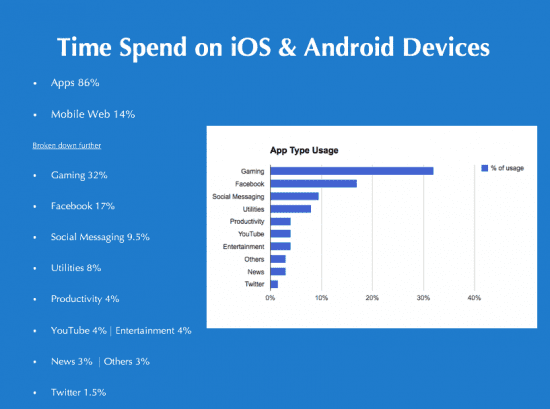Simon Swan's interview with Danny Denhard, A digital marketing consultant with 13 years experience in the industry, talking about consulting and giving away some great SEO tips
This interview discusses Danny’s views on how digital marketers should consider what are the key elements in maximising the return from the plethora of digital channels now available to sell a produce or service. Danny shares some fascinating thoughts on how brands need to rethink how they position themselves within the digital market and the importance for brands to build an authority, not to chase the Google algorithm but instead look to craft a voice of trust and meeting the needs of your audience through creating a utility and loyal community.
Q. Can you tell us a about your consultancy? What services you offer and the types of business you work with?
I offer three main product lines; consult, train and advise. I work with the full spectrum of businesses; from the leading global brands, challenger brands and start-ups. I have worked across most challenging verticals. I really enjoy working with challenger brands, they tend to be the most progressive and really enjoyable to work with and help to challenge the larger brands.
So the products I offer are easily broken down into three sections:
- Consultancy – typically content marketing, development of social media strategy and technical SEO and full programme audits, deep diving into a company and helping them improve is something I really enjoy. More recently I have helped businesses with ASO (app store optimisation) and helping businesses understand how to get involved with IoT (internet of thing)
- Training – I train across the three disciplines, content marketing, SEO and Social Media. Training is great fun and rewarding, it has taken me across Europe and have been lucky enough to work with some great companies. I actually enjoy training and really get a kick out of helping to develop people, teams and brands.
- Advising – advisory is something many brands require but do not always know where to look. I currently advise a couple of businesses, a start-up and an agency. Advisory roles can be from helping develop the right team, to help build a better product or advise businesses where to go next.
Q. You were invited to speak at Search London – can you provide us with some thoughts and insights into the search landscape for 2015 and where you see the landscape shifting?
My deck was centred around organic marketing (SEO, mobile apps, social media and content), what happened last year and what may happen. The landscape is going to continue to change and varies a lot depending to what vertical you are in but there are a few things I suggested brands to concentrate on in 2015:
- Always be auditing – it’s essential to be on top of what you offer and help users throughout their journey, this is particularly important for search and guiding search engines to the most helpful pages and sections of your site, app or business. When auditing you are in control of your own site and destiny, so there are no excuses not to audit, then highlight and recommend how to fix issues, bad links etc.
- Mobile – mobile experience has so many different complex layers, it is essential to understand how your site works, how it helps or hinder users and whether you need to develop a specific app to un-complicate the buying cycle or directly interact with individual customers. There was a stat released by Google that 97% of purchases were still made on mobile browsing against mobile apps so it is essential to understand how your business is performing on mobile and understand if you should create an app or develop a responsive site or even a m dot site.
- Differing search types – something a lot of people under estimate is the different ways users search.
- It is important understand how people search differently across mobile devices, the language users use and the expectations mobile users have.
- Virtual assistance and voice search really varies, the language we use is very different and often the intent behind voice search is very different to traditional text search. Cortana, Siri and Google Now all work in slightly different ways and provide different results, as brands we should learn how to influence this and offer the best results possible to our demographics across web and apps.
- Multi device search – many users search on the go, want to visit the same sites and basically have to restart or sync their history or even email themselves, making this seamless is vital.
- Trust signals – consumers have so many choices we look to brands that offer the most trust signals and really help us, having a good site is not enough anymore, a brand needs active and engaging social channels, good phone and email support and great rankings.
- Content creation – do not just create content for content sake, create great content that works for you, whether that’s short form / snackable / digestable content or long form that are resources and shareable.

Q. Podcasts seem to be a popular digital tactic you promote through your site – do you see this as a channel still underused and does it have a role to play in a brands content marketing toolkit?
Personally I love podcasts, as I am often travelling for work and as a freelancer I work varying offices I tend to have a lot of dedicated time to listen to podcasts. Podcasts have been great resources for over ten years, The BBC and some the music industry have offered outstanding podcasts for many years.
We should thank the likes of Serial, This American Life and podcasters Tim Ferriss and Joe Rogan for continually creating compelling content and making podcasts popular again. We should also thank Apple for making podcast a standalone app on iPhone’s and iPad’s.
Podcasts introduce personality, as a listener when you hear someone talk and speak openly you create a connection with the podcaster, weekly or bi-weekly podcasters become acquisitions as you know what they drink, what they eat and what they are passionate about. Opinions are more easily listened to by voice than text being read and for me personally it just sinks in. I often don’t have the time to sit and watch videos but listening to podcasts I do.
With my marketing hat on the real opportunities for brands are: podcasts offers an opportunity for transparent narratives and story telling. Podcasts opens the door for interactions, consumer questions, long-term debate and allows you to market yourselves and become an authority on categories away from just your own products. With over 5000 marketing messages per day it is essential you stay front of mind and a good podcast should stick in your mind or create an action for you.
If you would like an example of companies producing very high quality podcasts check out Gimlet Media, their shows start up and reply all have been awesome. Here is a list of my favourite podcasts.
Q. You provide some fascinating in depth studies interviewing industry leads on your blog specifically on SEO and Content Marketing for 2015 – what are some of the considerations brands should ensure they need to be thinking about for their strategies?
To break it down simply my considerations would be:
- Understand their customer and customer needs
- Making their customers happy in whatever way possible
- Become an authority / utility – ensure you do more than having a good product
- Make your site user friendly across all devices and easy to use on multi devices
- Building the right integrated team
- Build your community on site and use platforms to drive audiences to your brand destinations or site.
Q. Many brands struggle to understand how “digital” is structured within their organisations, indeed many still operate digital as a silo – what words of wisdom would you provide organisation struggling to adapt to a digital first focus?
The problem in one word: silo, marketing and digital should never be a silo. Most of the best businesses I have worked in or with are fully integrated and ensure all departments are transparent and understand how they fit in together.
Helping organisations go digital first is not easy but I tend to suggest the following:
- Communication – Start by how you communicate digital, make it relevant and explain how your targets and goals feed into theirs
- Language – Make your language as simple as possible aka speak the language of the company, make what you do so simple it is relevant to each person. Help people understand that they are influenced by
- Software – Find a great piece of software or CRM that makes peoples lives easier, I know a company who uses a private Facebook group with company info and shares and really helped the digital team show their relevancy. I have also found wiki’s or even slack more recently really help improve the bringing departments closer and understand what teams are doing.
- Reporting – Improve your reporting, provide examples of how digital is driving the business and show examples of how it is improving in one graph and share every week / month.
- Transparency – be as transparent as possible, share important information, go sit with and interact with different departments and understand what they do and show how what you do impacts them.
Q. The rise in content being pushed and the algorithmic changes deployed by Google to flush out poor performing sites and untrusted domains has created an opportunity for brands to create digital knowledge centres, becoming go-to destinations for information, content and advice, creating an oasis of trusted, authoritative content that existing customers and prospects will be delighted by. What are your thoughts?
I like how you have explained this and the message behind it. I agree there is great possibility out there for brands who are clever or strategic enough to take this forward. Many brands are not ready or just do not know how to create these hubs, some unfortunately struggle to even create a site that delights, educates and connects their audiences. Being able to build a connected community is essential; Lego, GoPro and Kraft are market leaders here and well worth looking into for inspiration.
There are important examples of this, email management and filtering especially with apps like Inbox by Gmail and mailbox (mac) app, the way the apps in app stores are displayed and ranked and then social media.
I think algorithmic changes also applies on social sites as much as search engines. Twitter’s recent intro of what you have missed and Facebook’s newsfeed updates and algorithmic controlled newsfeed arguably as important as it touches peoples lives more regularly, it influences your friend and family updates alongside the updates from companies and groups. Again there are opportunities here by creating groups, integrating into the revamped messenger product or creating a destination people have so much affinity it stays in your newsfeed.
Q. Does content marketing have a role to play for an ecommerce brand?
One hundred per cent. Content marketing in my mind has to play a large role for any brand particularly ecommerce brands. Content marketing should have taught brands to target their “people” / audience with ultra relevant content that is engaging and captures attention by hopefully sparking an emotion.
The problem with most businesses is they worry about numbers not the people behind it; content marketing helps put your people first.
All brands should want to create content that drives affinity, emotion, knowledge and conversion. Would a typical piece of advertising or marketing do this? Probably not, but in content marketing these are my four pillars and done correctly you can really drive these into small pieces or large series of content marketing.
















